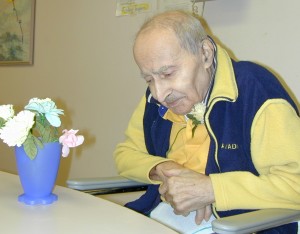
My father’s walk through Alzheimer’s is nearing the end.
The following is an excerpt from “Where’s my shoes?” My Father’s Walk
through Alzheimer’s.
Each time there is a change in Mardig’s condition, I get a call. (We called
my father by his first name in Armenian–MAR-deeg for Martin.) Starting January,
the calls come more frequently.
Your father is anemic.
“Brenda, your father is anemic. His red-blood cell level is low. There’s
occult blood in his stool.”
Each time they phone, I panic. This is it, he’s dying!
We talk for twenty minutes, I ask many questions.
“Mr. Avadian’s doctor suggests if you want more information to follow-up with
a gastroenterologist who will look at the stool samples and possibly recommend a
colonoscopy.”
I send a detailed email to caregivers asking how they’ve handled a similar
situation. We caregivers know, by pooling our knowledge, we sometimes have
more information than busy doctors!
Nearly every caregiver writes about the physical strain to prepare for a
colonoscopy: fasting, enema, and anesthesia. One caregiver summarizes it best,
“If he’s not in pain, let nature take its course.”
After a week of phone calls and emails, I give the skilled nursing home [SNF]
my decision: Mardig is to be given iron supplements (per the doctor) and I will
bring in soymilk (I read about it helping those with anemia).
Your father has difficulty swallowing.
“Brenda? We need to put Mr. Avadian on mechanical soft food.”
I panic. Gulp! This is it! He’s dying! I take a deep breath to slow
my racing heart. Sounding as calm as I can muster, “Yes, uhhh, mechanical soft.
Why?”
“He’s not eating his food.”
“Why?”
“He’s having difficulty swallowing.”
I can see it now; the next step is a feeding tube! “Oh, he cannot
swallow? Is this like pureed food?”
“No, our cook cuts up the food so Mr. Avadian can easily chew and then
swallow it. Pureed food is the next step.”
Silence.
“Hello?”
“Yes . . . this is the beginning of the end, isn’t it?”
“No, Mr. Avadian is doing quite well. He just needs a little help to get his
food down.”
Your father has pneumonia.
In February, I answer the phone and hear: “Mr. Avadian has pneumonia.”
“How did he get it?”
“I’ll have you talk with the nurse.”
The nurse explains, “Brenda, he has a fever. He caught an infection. The
x-ray shows lower-lobe infiltrates.”
Yeah, whatever those are! This is the end. I know it! I need to talk to
someone about hospice.
“He’s on oxygen right now. But he needs antibiotics.”
I definitely need to talk to someone about hospice! Oxygen? This is the
end. My frantic insides defy my outward composure, “Okay, give him
antibiotics.”
I write to June Kolf, a former hospice volunteer coordinator, author of
grief-related books, and a dear friend. She asks, “Why are they giving him
antibiotics? Brenda, did you know pneumonia is nicknamed the old person’s
friend?”
“No.”
“Yes, it’s called that because it often releases people from this life when
other diseases cannot.
I keep June’s pneumonia comment in mind for next time. Mardig recovers. He
seems to be tired constantly. Sometimes when David and I visit him, we can’t
wake him. We visit other residents and then go home. It seems, he needs more
rest.
Your father needs a Geri-chair.
Early March, there’s another call: “We need your
approval to place your father in a Geri-chair.”
“…a Geri-chair? Aren’t there any other options? He’ll become like the other
residents in Geri-chairs . . . drooling with their mouths hanging open in a
half-dead stupor, ignored in the hallways.” Did I just say that
aloud?
“Your dad is a lot more functional than some of our other residents. You
don’t have to worry about this. This is for his safety.”
“But . . . ”
“Next time you come in, talk with the director of nurses about this. For now,
I need your approval.”
I exhale a long SIGH. “Uhhh, okay.”
We receive other calls. Each time we’re assured he’s far off from needing
hospice.
Four weeks later, on a Friday morning, March 30, 2001, we’re having
difficulty feeding Mardig his breakfast. He’s not swallowing and his cheeks are
filling with food.
The following evening, my father suffers a massive
stroke and falls into a coma. Thirty minutes later, he’s gone.
For years, I live with regret that I was not by his side. As time heals my
wounds, I feel fortunate that he passed quickly.
Edited EXCERPT from “Where’s my shoes?” My Father’s Walk through
Alzheimer’s soon to be released as an eBook.
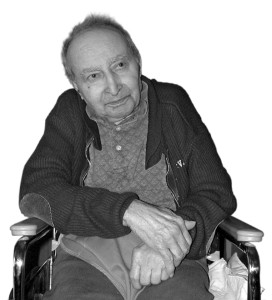
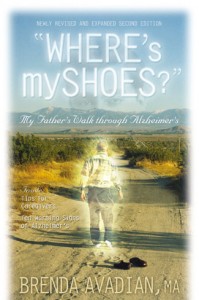

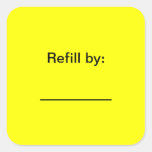
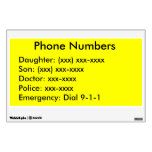









No comments:
Post a Comment